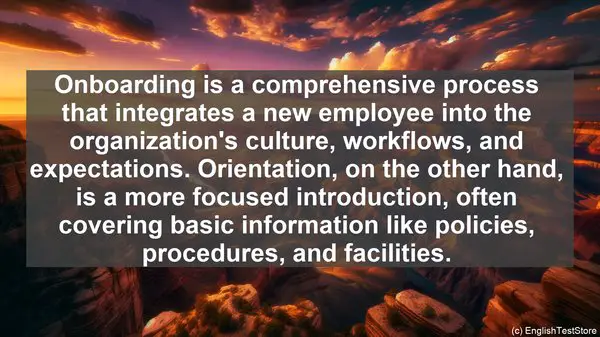Introduction
In the world of Human Resources Management, there are several terms that often get mixed up. Understanding these words correctly is crucial for effective communication and decision-making. Today, we’ll explore the top 10 commonly confused words in HR. Let’s dive in!
1. Recruitment vs. Selection
While both terms refer to the hiring process, recruitment focuses on attracting potential candidates, while selection involves choosing the most suitable candidate for a specific role. Recruitment is about creating a pool of applicants, whereas selection is the subsequent evaluation and decision-making stage.
2. Training vs. Development
Training is a short-term process that imparts specific skills or knowledge required for a particular job. On the other hand, development is a long-term investment in an employee’s overall growth and potential. It focuses on enhancing their abilities, often for future roles or responsibilities.

3. Performance Appraisal vs. Performance Management
Performance appraisal is a periodic evaluation of an employee’s job performance, often resulting in a rating or feedback. Performance management, however, is a continuous process that involves setting goals, providing feedback, and supporting employees in their professional journey.
4. Compensation vs. Benefits
Compensation refers to the monetary rewards an employee receives, such as salary or bonuses. Benefits, on the other hand, are non-monetary perks, like health insurance, vacation time, or retirement plans. Both are essential components of an employee’s total package.
5. Layoff vs. Termination
While both involve the end of an employment relationship, a layoff is usually temporary and often due to external factors like economic downturns. Termination, on the other hand, is a permanent separation, often due to performance or behavioral issues.
6. Diversity vs. Inclusion
Diversity refers to the presence of differences, such as race, gender, or age, within a group or organization. Inclusion, however, goes beyond mere representation. It’s about creating an environment where everyone feels valued, respected, and has equal opportunities.
7. Onboarding vs. Orientation
Onboarding is a comprehensive process that integrates a new employee into the organization’s culture, workflows, and expectations. Orientation, on the other hand, is a more focused introduction, often covering basic information like policies, procedures, and facilities.
8. HR Generalist vs. HR Specialist
An HR generalist is a versatile professional who handles a wide range of HR tasks, from recruitment to employee relations. An HR specialist, on the other hand, has in-depth expertise in a specific HR area, such as compensation or training.

9. Confidentiality vs. Privacy
Confidentiality refers to the protection of sensitive information within the organization. Privacy, on the other hand, extends beyond the workplace and includes an individual’s personal information and rights. Both are crucial in HR, considering the nature of the data handled.
10. HR Strategy vs. HR Tactics
HR strategy is the long-term plan that aligns HR initiatives with the organization’s overall goals. HR tactics, on the other hand, are the specific actions or methods employed to achieve those strategic objectives. Both are essential for effective HR management.
